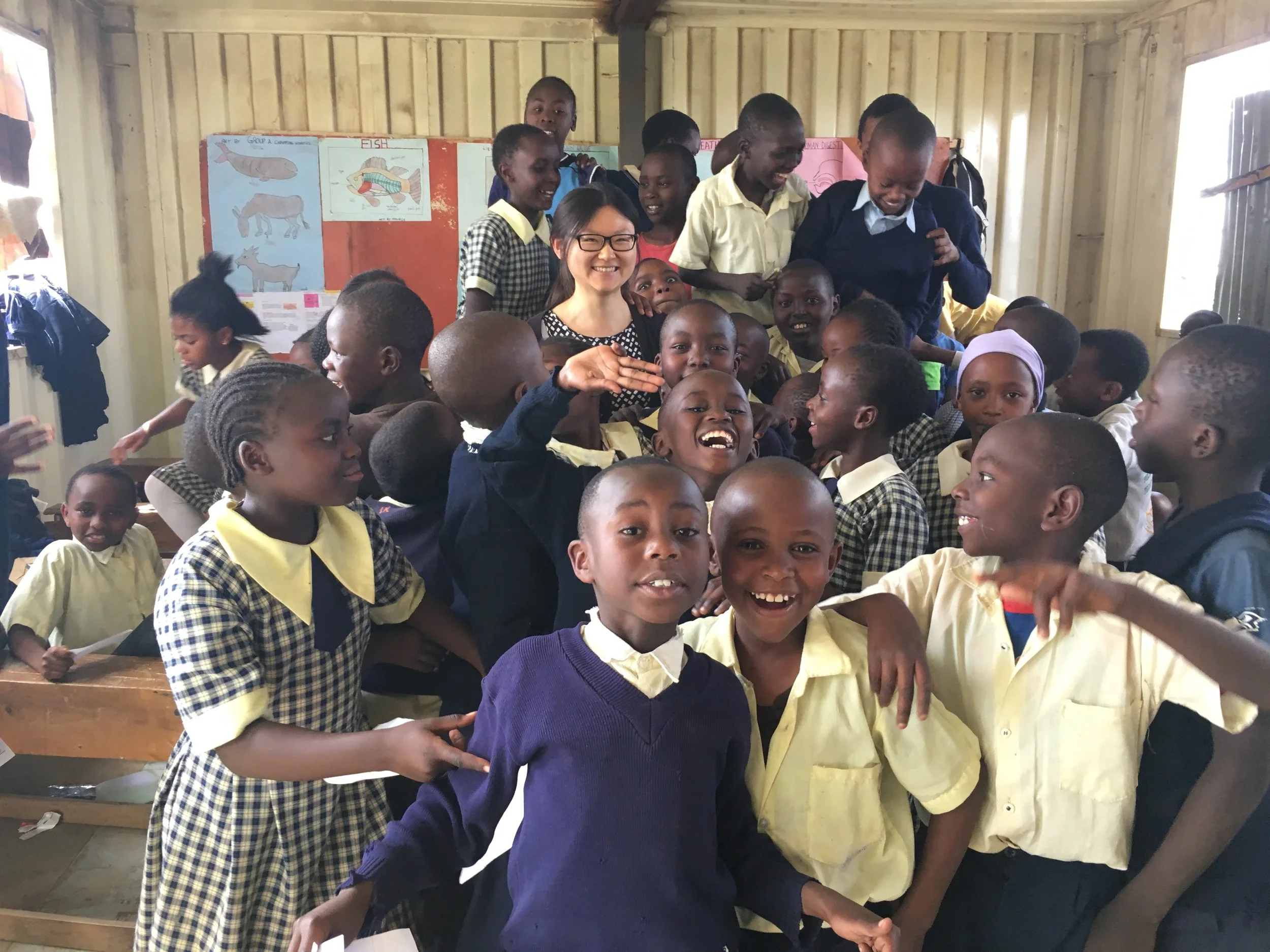BY KUN ZHANG
Kun Zhang is a second-year student in the International Development program. She spent her summer internship with M-Schule, a social enterprise dedicated to improving educational quality for primary school students, in Nairobi, Kenya.
The IDEV Summer Internship Series highlights the experiences of IDEV students participating in internships this past summer. Each year, IDEV students intern with various development organizations around the world. These internships are generously funded by SAIS donors, and offer valuable opportunities for students to gain real-world experience between their first and second years at SAIS. Kun's internship with M-Schule was sponsored by Fleischmann Tapiero.
Kenya, slums, informal primary schools, children aged 10-14, feature phones, mobile adaptive learning...
These are words that define my summer internship with M-Shule, an organization working to improve education for millions of students in Sub-Saharan Africa. M-Shule delivers personalized mini-lessons through mobile phones and aims to engage the whole community in each child’s learning. Indisputably the most rewarding summer I have ever had, my experience in Kenya has taught me numerous things, challenged my views on development, and provoked me to think more deeply about how policies could be better implemented at the field level.
Coming with experiences working with low-income populations in both the U.S. and my home country, China, and having had a year of rigorous coursework in international development, I did not imagine that so many of the assumptions that I had before coming here would be challenged. Indeed, the first and one of the most important lessons that I have learned is to never make assumptions. Chances are, things that we take so much for granted in familiar contexts do not always work the same way in a different society.
To illustrate, here is a small example. My duties as an intern included visiting our partner schools in Nairobi’s scattered slums to collect student and teacher feedback for qualitative and quantitative assessment, as well as building the entire structure for analyzing learner-usage data and the impact of M-Shule’s service on student performance. Many of the interview questions that I designed involved time: when is homework finished, how much time is spent on an M-Shule lesson, etc.
Before starting the very first field interviews, I never thought that these questions would be among the toughest to obtain accurate answers. Students often gave apparently suspicious answers such as going to bed at 3am and taking 10 minutes to finish all their homework. These children were definitely not lying, so what had gone wrong?
It turns out that in Kiswahili—the common language that Kenyans use to communicate with each other—time is denoted differently than in English. While English is the official language of Kenya, it is spoken by most people only as a third language, after their native tribal language and Kiswahili. In Kiswahili, the day starts with the hour of sunrise, so hours can be easily confused when translating into English. Moreover, many households in the slums do not have clocks and children do not have much access to their parents’ phones, so the perception of time is relatively lacking. Therefore, to get an estimate of time, I learned to ask whether the evening news had started when the students usually finished doing homework, and what language the news was in, as there are news shows at 7pm and 9pm in Kenya, one in English and one in Kiswahili. As television is a highly valued asset in slums, chances are high that a neighborhood would have had at least one TV even though apparently not all households can afford to have their own.
It was experiences like this that made me realize that effective development strategies can never be born out of pure theories and thinking. Instead, they have to be grounded in reality, with a full understanding of the various challenges that exist at the field level. This is by no means discouraging—it has taught me, as a future development practitioner, how to better respect each individual whom I aim to help, and build with them together a world free of poverty.
PHOTO CREDIT: Kun Zhang
Below, the author takes a quick break to pose with students.


